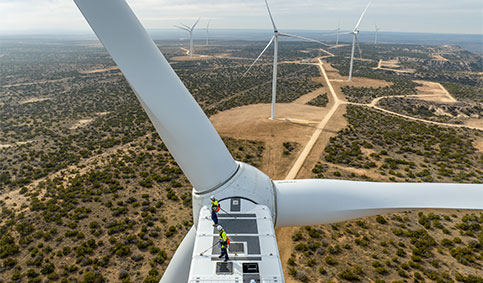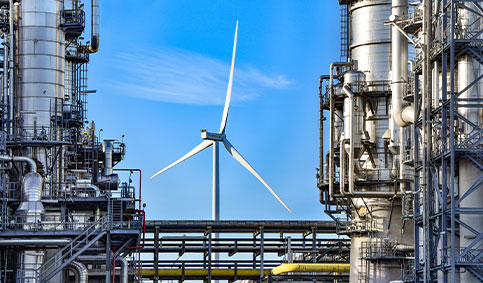Hydrogen
Hydrogen can play a role in helping society to achieve net-zero emissions. It offers a way to reduce emissions from sectors that are hard to decarbonise, including heavy industry and heavy-duty road transport.
We believe it is vital to translate hydrogen strategies and ambitions into clear, coherent, and timely policies and regulations to give long-term certainty to support supply and demand, along with investment in infrastructure.
In the USA, we advocated the swift and pragmatic implementation of the hydrogen tax credit provisions in the Inflation Reduction Act (IRA), based on carbon intensity as originally set out. We also responded to the U.S. Department of Energy’s request for information about demand-side support for clean energy technologies. In our response, we highlighted measures to increase demand for hydrogen.[1]
In Canada, we responded to the government consultation on a clean hydrogen investment tax credit.[2] We support the intent of the tax credit and highlighted the need for funding tiers to be based on carbon intensity, irrespective of production method.
In the EU, we highlighted the role of hydrogen in decarbonising industry, heavy-duty road transport and shipping in our response to the EU consultation on a 2040 climate target.[3] Our response sets out key measures that would be needed to encourage growth in hydrogen. These include greater public investment in grids and pipelines for the transport of hydrogen, measures to stimulate demand and the introduction of green hydrogen certificates.
In Australia, we responded to the government’s proposed Guarantee of Origin scheme, which will provide a framework for renewable energy production to be certified beyond 2030.[4] The initial focus of the scheme will be on hydrogen, but it is expected to include other products in the future. Our response noted that the proposal sets out a clear and rational approach for the scheme and offered comments on specific aspects.
In the Netherlands, there are ongoing discussions and consultations about national policies to support hydrogen. Shell is building Holland Hydrogen 1, which will be one of the largest renewable hydrogen plants in Europe when it becomes operational in the second half of the decade. In 2023, a new industry association called NLHydrogen was established, of which we are a founding member. We engage with the Dutch government directly on hydrogen policy and indirectly through NLHydrogen.
We provide more detail about our advocacy on some of these topics on our website.[5]

[2] www.shell.com/external-redirects/can-2023-nine-shell-submission-clean-h2-itc
[3] www.shell.com/external-redirects/eu-2023-six-shell-submission-eu-2040-climate-target
[4] www.shell.com/external-redirects/aus-2023-10-shell-submission-guarantee-of-origin-scheme-design
[5] www.shell.com/sustainability/transparency-and-sustainability-reporting/advocacy-and-political-activity/climate-and-energy-transition-advocacy-updates.html. We also provide further information about hydrogen on our website: www.shell.com/what-we-do/hydrogen.html









